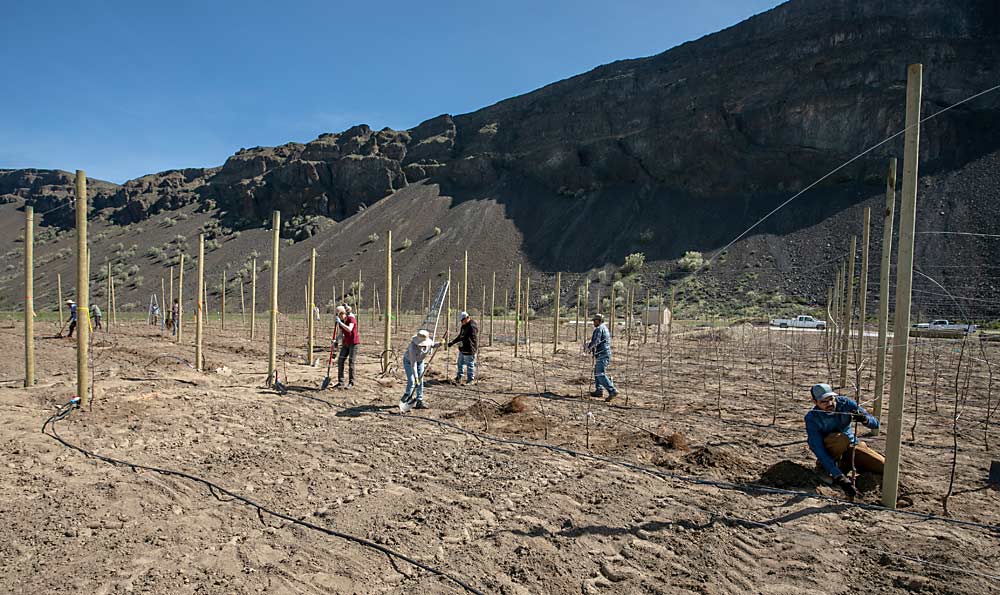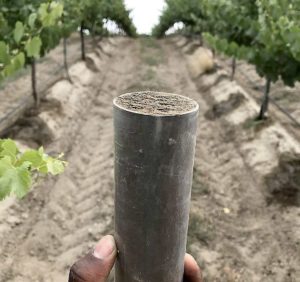
Three years after Washington lawmakers approved a plan to invest serious money in soil health research across the state’s diverse agricultural production regions and key crop systems, the orchard that will host the effort’s apple research was planted this week outside Wenatchee.
With funding from the Washington Soil Health Initiative, researchers from Washington State University and the U.S. Department of Agriculture planted 2.5 acres of Honeycrisp at the Sunrise Research Orchard in Rock Island, just east of Wenatchee. The initiative is a collaboration between WSU, the Washington State Department of Agriculture and the Washington State Conservation Commission.
According to project leader and extension specialist Tianna DuPont, the block will host trials of soil amendments such as mulch, compost and manure to see how well the practices reduce variability, conserve water and buffer environmental stress.
A second block, to be planted next year, will be designed to study replant disease. A cherry planting is scheduled for 2025.
Known as a Long-term Agroecological Research and Extension site, or LTARE in the parlance of the soil health initiative, the vision is to collect data over decades.
“Regular research projects last one to five years and rarely can capture long-term changes in soil characteristics and those long-term effects on tree performance,” said Lee Kalcsits, WSU environmental physiologist and research co-leader.
In a statement, he called the initiative-supported block an asset to both the university and the tree fruit industry, as well as “an incubator for future soil health research projects.”
The planting is designed to host a collaboration of different researchers to look at many aspects of how soil health impacts production, DuPont said.
“We set things up to have a consistent long-term look but also to be flexible and able to host multiple questions that arise,” she said.
DuPont said soil health is connected to yield and fruit quality, including challenges such as bitter pit, replant disease and other soilborne diseases, compaction and water management.
A press release announcing the planting outlines five goals:
—Establish best practices for optimal soil health.
—Reduce variability in orchards with amendments or other soil-health-building practices.
—Reduce bitter pit and other disorders related to nutrient uptake and water stress.
—Establish soil health practices that conserve water and buffer environmental stress in the face of climate change.
—Identify long-term sustainable approaches to managing soilborne diseases and nematodes.
—by Kate Prengaman







Leave A Comment